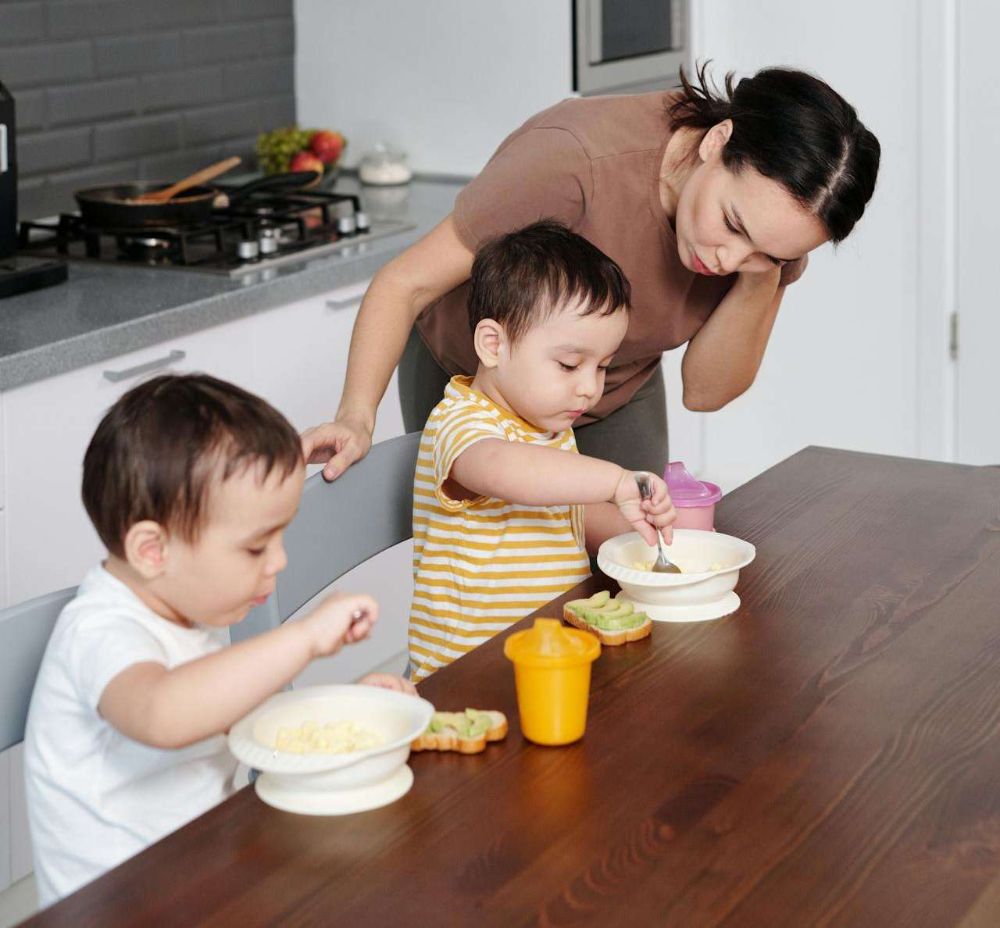Unplugged Dining: Secrets To Screen-Free Family Mealtimes
Parenting mealtimes can be a challenging balancing act. You typically want the whole family to eat together and interact, but you also desire a peaceful environment without struggles to feed your child or frequent tantrums from your toddler.
Today's parents face greater challenges than those 15 years ago when my twins were toddlers, due to the pervasive presence of technology and screens in our lives. Fifteen years ago, iPads and TVs were rare treats at mealtimes, but now, digital distractions have become the norm, whether it’s a phone or an iPad at the table or highchair.
Many parents and caregivers willingly use screens at mealtimes, especially if the child is a fussy eater, unwell, or if parents want their child to eat more. However, when a child’s brain is focused on the screen, eating becomes an autopilot activity. Consequently, they miss out on experiencing different textures and flavours and the social aspect of mealtimes. Mindless eating in large quantities is also unhealthy in the long run.
Weaning a child off screens for distraction-free meals is often easier said than done. Here are some steps to help break free from screens and foster healthy mealtimes together:
1. Change the routine
Children thrive on routine, so if screens have become part of mealtime, break the habit by introducing new patterns. Swap the screen for a toy or book to distract your child initially, and if possible, change the eating location.
If your child uses a highchair, move it to a different part of the house; if they sit at the table, give them a new seat. Playing music instead of having the TV on can also alter the usual environment. By redirecting their attention to something new, your child may initially resist but will eventually adapt.
Having occasional playdates with another child at a similar stage can also help. The children can eat together, which aids in developing their social skills and reduces the focus on screens.
2. Allow time for adjustment
If your child has been eating with a screen for a while, don't expect immediate compliance. If going cold turkey doesn’t work, gradually wean them off screens. I recommend doing this towards the end of the meal.
For example, if your child demands the device, calmly explain that they can have it after taking two more bites. From my experience, I’ve learnt that this gradual approach can ease the transition better than starting with a device and removing it mid-meal.
3. Practise what you preach
To encourage your child to go device-free, you need to model the same behaviour. Turn off all your devices, including your phone. Make the first screen-free meal enjoyable by serving their favourite foods to ensure a fuss-free experience – but not junk food!

IMAGE: PEXELS
4. Engage as a family
If you’re removing their distraction, be prepared to provide entertainment. Engage with your child to make eating a fun, shared experience. When my twins were in highchairs, it was entertaining to watch them experiment with food.
Acting silly, cutting food into fun shapes, and introducing new textures and brightly coloured fruits and veggies can make mealtimes enjoyable. Once my boys were old enough to sit at the table, modelling good eating habits became important as young children quickly mimic actions over words.
5. Adjust your expectations
While training your child to focus solely on their food, be mindful of their new eating habits. Educate yourself on appropriate portion sizes for their age. It's easier to feed a child more when they are distracted by a screen than when they are focusing on their meal.
6. Ensure consistency among adults
Consistency from all caregivers is crucial. Mixed signals from different adults can confuse a child. If you and your partner are working towards device-free mealtimes, make sure that other caregivers, such as grandparents or nannies, follow the same rules.
7. Maintain consistency
Consistency is key in parenting. Transitioning to a new habit takes time, so try not to get frustrated when things don't go as planned.
However, it’s important to pick your battles wisely. Eating out with a screaming child can be more stressful than at home, so consider being more flexible when dining out. If letting your child watch something during a meal in a restaurant keeps the peace, allow it occasionally.
Finally, acknowledge that you are doing your best, and that you won’t win every battle every day. If you’ve had a hard day and lack the energy for a potentially stressful meal, allow that meal to be an exception, and start fresh the next day.
For the latest updates on Wonderwall.sg, be sure to follow us on TikTok, Telegram, Instagram, and Facebook. If you have a story idea for us, email us at [email protected].











